Remote Campsite Introduce
For many Californians, the call of the wild is an irresistible urge, a desire to escape the hustle and bustle of city life and immerse themselves in the state's breathtaking natural landscapes. While developed campgrounds offer convenience, there's a growing appreciation for the profound tranquility and raw beauty found at a "Remote Campsite." Unlike bustling campgrounds with amenities and constant activity, a remote campsite in California offers an unparalleled opportunity for solitude, self-reliance, and a deep connection with nature. It’s where the symphony of crickets replaces traffic noise, and starlit skies outshine city lights.
This type of camping experience is about embracing simplicity and preparation. When you choose a remote campsite in California, you're opting for an adventure that requires you to be self-sufficient and mindful of your impact on the environment. It's an opportunity to truly disconnect, to find peace in the quiet wilderness, and to witness California's natural splendor in its most untouched form. From the towering redwoods to the vast deserts and rugged mountains, California offers an incredible diversity of remote camping opportunities for those willing to venture off the beaten path. This article is designed to help Californians understand what to expect from a remote campsite experience, ensuring a safe, enjoyable, and unforgettable outdoor adventure.
It's important to differentiate "Remote Campsite" from typical developed campgrounds. While specific names for individual remote campsites are often not publicly advertised to preserve their wild nature, the concept refers to designated or dispersed camping areas within national forests, BLM lands, or certain state park backcountry areas where services are minimal to non-existent. This guide will focus on the general characteristics, necessary preparations, and the unique appeal of choosing a remote campsite for your next California outdoor escape.
A "Remote Campsite" in California is, by its very definition, located in the wilderness, often far from paved roads and urban centers. While a specific address like "California, USA" broadly defines its location, the actual accessibility of any given remote campsite can vary significantly. These sites are typically found within vast public lands, including National Forests, Bureau of Land Management (BLM) lands, and designated wilderness areas within California State Parks or National Parks. Access often involves driving on unpaved roads, which may require high-clearance or four-wheel-drive vehicles, especially during certain seasons or after adverse weather conditions.
The journey to a remote campsite is often part of the adventure. It might involve navigating winding dirt roads, crossing small streams, or hiking several miles with your gear on your back. Unlike developed campgrounds with clear signage and easy parking, remote campsites require a good map, a reliable navigation system (GPS or compass), and a strong understanding of the area you plan to visit. Cell service is frequently unreliable or non-existent in these areas, emphasizing the need for thorough preparation and self-reliance.
Popular regions in California known for remote camping opportunities include the Sierra Nevada mountains, various national forests like Inyo, Stanislaus, and Sequoia National Forests, as well as parts of the Mojave Desert and the expansive BLM lands throughout the state. Each of these regions offers different landscapes and challenges, from high-altitude alpine settings to arid desert environments. Before heading out, it's crucial to research the specific regulations and conditions of the land management agency responsible for your chosen area, as rules regarding dispersed camping, campfires, and waste disposal can vary.
When considering a "Remote Campsite" in California, it's essential to reset your expectations regarding services. Unlike developed campgrounds, which may offer restrooms, potable water, picnic tables, and even showers, remote campsites provide minimal to no services. This is a fundamental aspect of the remote camping experience, emphasizing self-sufficiency and a "Leave No Trace" ethic.
- No Potable Water: There is typically no access to treated drinking water. Campers must carry in all their water or have the means to filter or purify natural water sources. This is a critical safety consideration for any remote camping trip.
- No Designated Restrooms: Facilities for human waste disposal are generally not provided. Campers must be prepared to dig "cat holes" at least 100-200 feet away from water sources, trails, and campsites, or pack out all human waste using wag bags in certain sensitive areas.
- No Trash Receptacles: You are responsible for packing out everything you pack in, including all trash, food scraps, and waste. "Leave No Trace" principles are paramount to preserving the natural environment of remote areas.
- Minimal to No Facilities: You won't find picnic tables, fire rings (unless pre-existing and permitted by local regulations), or leveled tent pads. Campers must be prepared to create their own comfortable and safe camp setup.
- No On-Site Staff: There are no camp hosts or rangers present at remote campsites to assist with issues or provide information. Emergency situations require self-reliance and pre-planned communication strategies.
The allure of a "Remote Campsite" in California lies in its unique features and highlights, which are often the very absence of typical campground amenities. These characteristics appeal to those seeking a deeper connection with nature and a true escape.
- Unparalleled Solitude and Privacy: This is arguably the biggest draw. Remote campsites offer a sense of isolation rarely found elsewhere, allowing for quiet reflection and an escape from crowds. You're less likely to hear neighboring campers and more likely to hear the sounds of wildlife.
- Pristine Natural Beauty: Located in untouched wilderness areas, remote campsites provide direct access to breathtaking landscapes, including old-growth forests, high-desert vistas, rugged coastlines, and majestic mountain ranges. The scenery is often far more dramatic and unspoiled than in developed areas.
- Unobstructed Stargazing: Far from city lights, the night skies at a remote campsite are typically incredibly dark, offering unparalleled views of stars, planets, and the Milky Way. It's a truly humbling experience.
- Wildlife Viewing Opportunities: Being deeper in the wilderness increases your chances of observing native wildlife in their natural habitat, from deer and various bird species to, in some areas, larger mammals.
- Self-Reliance and Skill Development: A remote camping trip inherently requires more planning and self-sufficiency, offering a rewarding opportunity to hone your outdoor skills, including navigation, wilderness first aid, and resourceful problem-solving.
- Freedom and Flexibility: Within regulations, dispersed camping often allows for more flexibility in choosing your exact campsite location, offering a sense of freedom that developed campgrounds cannot match.
- Authentic Wilderness Experience: For those who truly want to immerse themselves in the wild, a remote campsite delivers an authentic, unmediated encounter with nature, free from modern distractions.
Given the nature of a "Remote Campsite" in California, there isn't a single centralized contact number or address in the way a commercial business would have. The concept refers to camping on public lands, managed by various state and federal agencies. Therefore, contacting the relevant land management agency is crucial for information specific to your chosen remote area.
General inquiries about camping on California public lands can often be directed to:
- California State Parks: For information on backcountry camping within state parks, visit their official website or contact their general information line. For reservations in some state parks that offer more developed, but still somewhat remote, options: (800) 444-7275 (ReserveCalifornia.com customer service).
- U.S. Forest Service (National Forests in California): For dispersed camping regulations, fire restrictions, and forest-specific information, it's best to contact the ranger district office for the specific National Forest you plan to visit. You can find their contact information through the USDA Forest Service website.
- Bureau of Land Management (BLM California): For rules and guidelines on camping on BLM lands, which often allow for dispersed camping, refer to the specific field office governing the area of interest. Their contact details are available on the BLM California website.
- National Park Service (National Parks in California): For backcountry permits and specific rules for remote camping within National Parks (e.g., Yosemite, Sequoia & Kings Canyon, Death Valley), visit the individual park's official website or their visitor centers. Reservation systems like Recreation.gov often handle permits for these areas: 877-444-6777.
Always research the specific region you intend to visit and note the contact information for that particular park, forest, or district office for the most accurate and up-to-date information, especially regarding fire restrictions or road closures.
For Californians, the appeal of a "Remote Campsite" lies in its profound suitability for those who truly appreciate the state's unparalleled natural heritage and seek a deeper, more authentic connection with the outdoors. Locals often possess a unique understanding of California's diverse landscapes, from its sun-drenched deserts to its majestic mountains and serene coastlines, and a remote campsite allows them to experience these environments in their most pristine and untouched form. It's an opportunity to escape the well-trodden paths and urban sprawl that define much of modern life in the Golden State.
One of the primary reasons a remote campsite is ideal for Californians is the unparalleled sense of peace and solitude it offers. In a state as populous and dynamic as California, finding true quiet can be a challenge. Remote camping provides an invaluable sanctuary, where the only sounds are the whispers of the wind, the rustling of leaves, or the distant call of wildlife. This quietude is a balm for the soul, allowing for genuine relaxation and a profound sense of rejuvenation, far from the demands of everyday life in bustling cities like Los Angeles, San Francisco, or San Diego.
Furthermore, engaging with a remote campsite fosters self-reliance and a deeper appreciation for environmental stewardship, qualities that resonate strongly with many Californians. The "Leave No Trace" principles, which are fundamental to remote camping, encourage responsible outdoor ethics, ensuring that these pristine areas remain beautiful for future generations. For locals who grew up exploring California's wilderness, or those new to the state eager to truly immerse themselves in its natural wonders, the challenge and reward of self-sufficient camping offer a unique sense of accomplishment and a heightened awareness of their role in preserving these precious landscapes.
Finally, the sheer diversity of remote camping opportunities across California means there's a perfect remote campsite experience for every local adventurer, regardless of their preferred environment. Whether it's the high-alpine solitude of the Sierra Nevada, the stark beauty of a desert landscape under a blanket of stars, or the rugged charm of a coastal wilderness, Californians have an entire state of unspoiled natural beauty to explore. A remote campsite isn't just a place to sleep; it's a gateway to adventure, a classroom for outdoor skills, and a profound reminder of the untamed beauty that lies just beyond the edges of California's bustling urban centers. For those ready to disconnect and explore, a remote campsite offers an irreplaceable and deeply rewarding experience.
Alternative Option
Remote Campsite Photos
Remote Campsite Location
Remote Campsite Reviews
More Camping Near Me
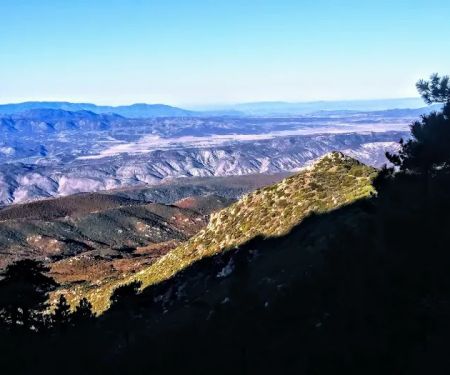 Santa Rosa Campground3.0 (7 reviews)
Santa Rosa Campground3.0 (7 reviews)Mountain Center, CA 92561, USA
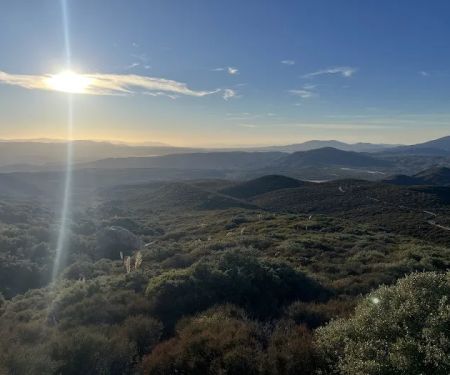 Santa Rosa Yellow Post Sites4.0 (12 reviews)
Santa Rosa Yellow Post Sites4.0 (12 reviews)Forest Rte 7S02, Mountain Center, CA 92561, USA
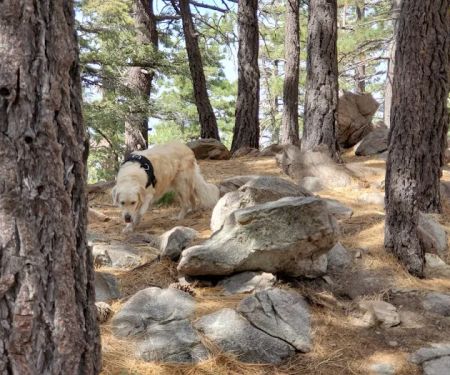 Yellow post4.0 (3 reviews)
Yellow post4.0 (3 reviews)Mountain Center, CA 92561, USA
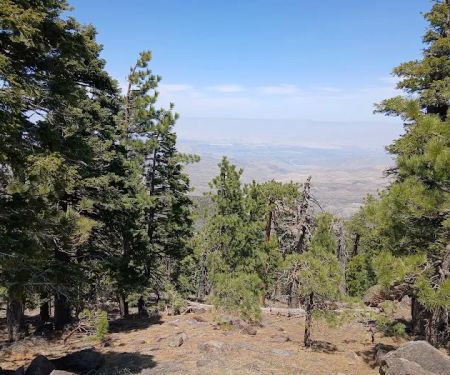 Stump Spring Campground3.0 (1 reviews)
Stump Spring Campground3.0 (1 reviews)Mountain Center, CA 92561, USA
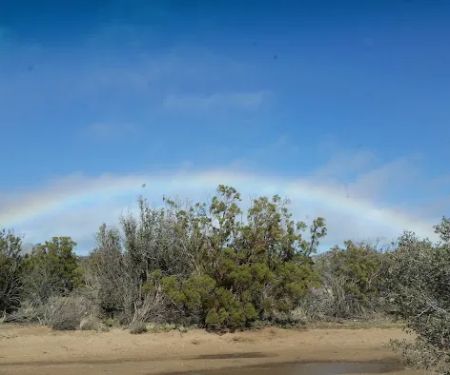 Ribbonwood Equestrian Campground5.0 (4 reviews)
Ribbonwood Equestrian Campground5.0 (4 reviews)70210 Pines to Palms Hwy, Mountain Center, CA 92561, USA
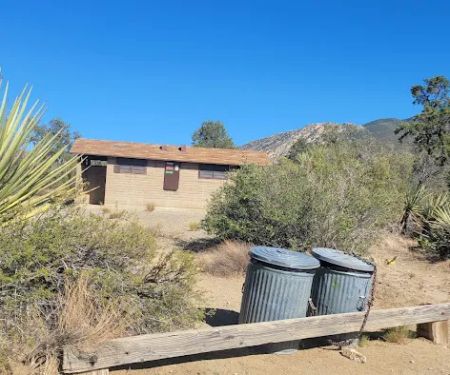 Pinyon Flat Campground4.0 (79 reviews)
Pinyon Flat Campground4.0 (79 reviews)Campground Rd, Mountain Center, CA 92561, USA
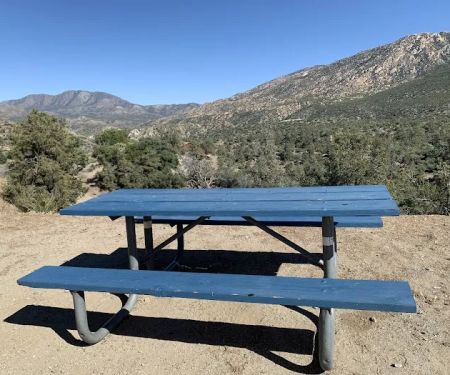 Nightingale Campground5.0 (1 reviews)
Nightingale Campground5.0 (1 reviews)70111 CA-74, Mountain Center, CA 92561, USA
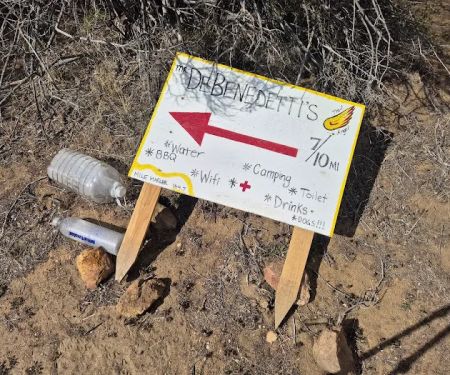 DeBenedetti's place for PCT hikers5.0 (4 reviews)
DeBenedetti's place for PCT hikers5.0 (4 reviews)62245 Coyote Canyon Rd, Anza, CA 92539, USA
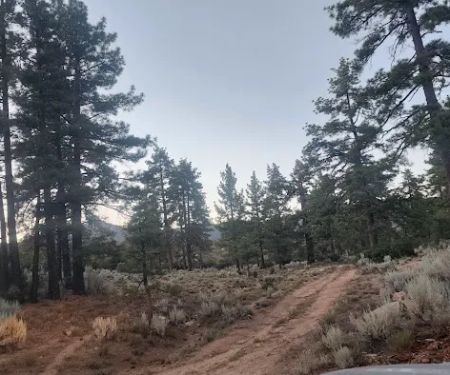 Goff Flat Yellow Post Camp Site5.0 (2 reviews)
Goff Flat Yellow Post Camp Site5.0 (2 reviews)JCQ5+R3, Mountain Center, CA 92561, USA
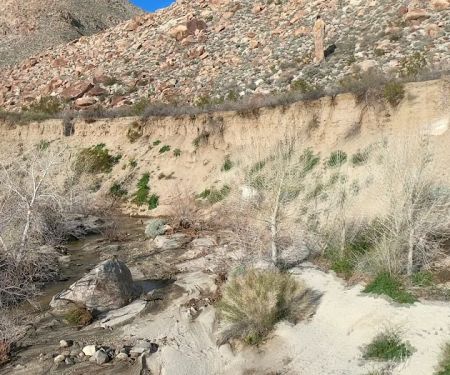 Sheep Canyon Campground4.0 (26 reviews)
Sheep Canyon Campground4.0 (26 reviews)California, USA
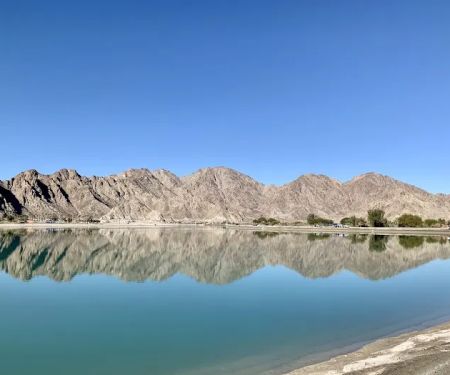 Lake Cahuilla Campground4.0 (94 reviews)
Lake Cahuilla Campground4.0 (94 reviews)Cahuilla Park Rd, La Quinta, CA 92253, USA
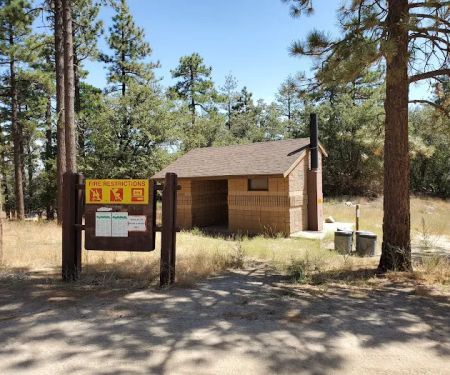 Tool Box Springs Yellow Post Sites4.0 (40 reviews)
Tool Box Springs Yellow Post Sites4.0 (40 reviews)Thomas Mountain Rd, Mountain Center, CA 92561, USA
Categories
Top Visited Sites
 Manistee River RV Resort & Marina4.0 (334 reviews)
Manistee River RV Resort & Marina4.0 (334 reviews) Midway 2 RV Park5.0 (1 reviews)
Midway 2 RV Park5.0 (1 reviews) Maple Grove2.0 (36 reviews)
Maple Grove2.0 (36 reviews)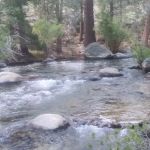 Paha Campground4.0 (33 reviews)
Paha Campground4.0 (33 reviews) Sodus Point Lake Ontario KOA4.0 (132 reviews)
Sodus Point Lake Ontario KOA4.0 (132 reviews)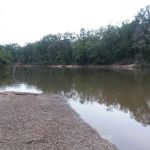 Boynton Landing4.0 (8 reviews)
Boynton Landing4.0 (8 reviews)Top Camping Searches
Trending The Campfire Posts
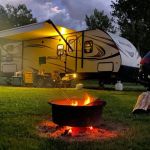 RV Camping Etiquette for Shared Campgrounds: A Guide to Respecting Fellow Campers
RV Camping Etiquette for Shared Campgrounds: A Guide to Respecting Fellow Campers How to Plan the Perfect Weekend Camping Trip on a Budget
How to Plan the Perfect Weekend Camping Trip on a Budget The Best Campsites for Trail Running Adventures | Top Locations for Runners
The Best Campsites for Trail Running Adventures | Top Locations for Runners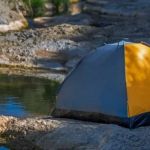 Tips for Camping With Limited Water Supply - Efficient Water Management for Outdoor Adventures
Tips for Camping With Limited Water Supply - Efficient Water Management for Outdoor Adventures Top 10 Tips for Safe and Fun RV Camping
Top 10 Tips for Safe and Fun RV Camping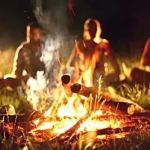 Best Campfire Songs for Autumn Nights: Create Memorable Moments Around the Fire
Best Campfire Songs for Autumn Nights: Create Memorable Moments Around the Fire